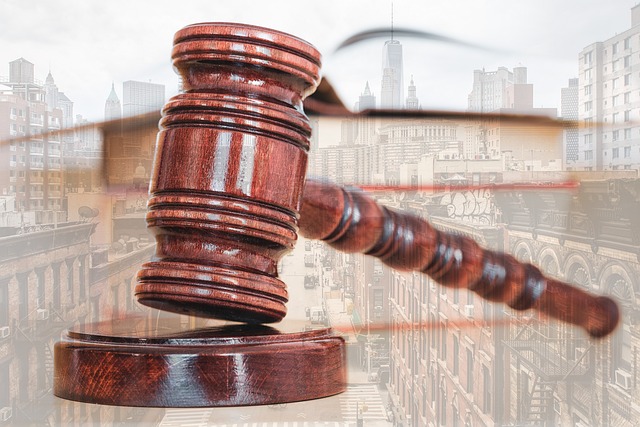Consumer protection laws emphasize resolving disputes outside formal court proceedings, particularly for breaches of contract. This approach offers a swift, cost-effective alternative to litigation, involving negotiations or mediation. Skilled business lawyers guide clients through these processes, securing favorable outcomes and preserving reputations. While settling outside court saves time and money, it requires careful consideration to avoid unfair agreements. Through successful settlements, consumers protect their rights, promote ethical business conduct, and set precedents for future practices.
“Consumer protection suits play a vital role in safeguarding the rights of individuals in their interactions with businesses. This article delves into the intricate world of consumer law, guiding readers through key aspects. We explore what constitutes a breach of contract and its legal implications. Additionally, we weigh the benefits and drawbacks of settling outside court, offering insights into the process and notable success stories. By understanding these dynamics, consumers and businesses alike can navigate their responsibilities with confidence, ensuring fair practices and resolutions.”
- Understanding Consumer Protection Laws: A Overview
- When is a Breach of Contract Occasions for Legal Action?
- Benefits and Drawbacks of Settling Outside Court
- The Process of Reaching a Settlement Agreement
- Success Stories: Notable Consumer Protection Suit Settlements
Understanding Consumer Protection Laws: A Overview

Consumer protection laws are designed to safeguard individuals from unfair practices and ensure businesses uphold their obligations. These laws cover a wide range of issues, including product safety, pricing transparency, advertising integrity, and more. Understanding these regulations is crucial for both consumers and businesses alike, as it empowers buyers to make informed decisions and holds sellers accountable for any breach of contract or misleading behavior.
One key aspect often addressed by consumer protection measures is resolving disputes without formal court proceedings. Settling a breach of contract outside the courtroom can be a swift and cost-effective alternative, achieving extraordinary results in many cases. This process involves negotiations and agreements between the parties involved, aiming for a complete dismissal of all charges. Such methods allow businesses to protect their reputation while consumers gain resolution, ensuring fairness throughout all stages of the investigative and enforcement process.
When is a Breach of Contract Occasions for Legal Action?

When a breach of contract occurs, it’s not always necessary to head straight to court. Many disputes can be resolved through alternative methods, such as negotiation or mediation, which are often faster and more cost-effective than litigation. For instance, if one party fails to deliver goods or services as agreed upon in the contract, the affected party may first attempt to settle the breach of contract outside of court. This could involve direct communication with the breaching party to negotiate a resolution that meets both sides’ needs.
Achieving extraordinary results without going to trial requires skill and experience. A respected business lawyer can guide their client through this process, ensuring all legal rights are protected. With an unprecedented track record in settling breach of contract cases outside court, legal professionals have demonstrated their ability to navigate complex situations and secure favourable outcomes for their clients, avoiding the time-consuming and expensive nature of litigation.
Benefits and Drawbacks of Settling Outside Court

Settling a breach of contract outside court offers several advantages for both corporate and individual clients. One of the primary benefits is cost-effectiveness; litigation can be expensive, with legal fees often escalating quickly. By settling, parties can avoid these substantial expenses and reach a mutually agreeable resolution. Additionally, it provides faster resolution compared to lengthy courtroom battles, allowing businesses and individuals to move forward with their operations or personal lives promptly. This agility is particularly beneficial for time-sensitive matters where swift action is crucial.
However, there are potential drawbacks to consider. In some cases, settling outside court may hinder the ability to fully explore all legal arguments, especially in complex contracts. Furthermore, it can be less favorable if one party is unduly influential or manipulative, potentially leading to an unfair agreement. Unlike general criminal defense scenarios, where plea bargains offer a degree of discretion, corporate and individual clients may face more stringent consequences if not adequately represented during settlement negotiations. Nonetheless, when managed effectively, settling breaches of contract outside court can foster positive relationships within the philanthropic and political communities, encouraging cooperative conflict resolution.
The Process of Reaching a Settlement Agreement

When consumer protection suits reach a stalemate or a resolution is sought by either party, the process often involves negotiating a settlement agreement outside of court. This alternative route to resolving disputes, known as Alternative Dispute Resolution (ADR), is increasingly popular in civil litigation. Settling a breach of contract outside court allows for more control over the outcome and can be particularly beneficial when dealing with complex consumer issues.
In these negotiations, both corporate and individual clients can work together with legal representatives to reach an agreement that satisfies their interests. This approach offers a cost-effective and efficient solution compared to prolonged litigation. By settling, parties can avoid the time and expense of trial, which is especially advantageous when seeking winning challenging defense verdicts or achieving extraordinary results in consumer protection cases.
Success Stories: Notable Consumer Protection Suit Settlements

In the realm of consumer protection, notable success stories often emerge from settlements that demonstrate the power of advocating for rights outside the confines of a courtroom. One such example is when consumers united to take on large corporations accused of deceptive practices, leading to substantial financial recoveries. These out-of-court resolutions are not merely quick fixes; they represent strategic white collar defense victories, ensuring companies adhere to ethical standards across all stages of the investigative and enforcement process.
Achieving extraordinary results in consumer protection suits requires a delicate balance between assertive legal tactics and a commitment to finding mutually beneficial solutions. Notable settlements often serve as a wake-up call for businesses, signaling a shift towards more transparent and responsible conduct. Through these successful cases, consumers not only regain their trust but also set a precedent that influences future business practices, fostering an environment where ethical behavior becomes the norm rather than the exception.
Consumer protection laws are designed to safeguard individuals from unfair practices, ensuring businesses uphold their contractual obligations. When a breach occurs, consumers have legal recourse. While going to court is an option, settling outside of court can offer benefits such as speedier resolution and confidentiality. Understanding the process involves recognizing when a breach happens, evaluating settlement advantages and disadvantages, and engaging in successful negotiations. By doing so, consumers can achieve justice and receive fair compensation without lengthy legal battles.






